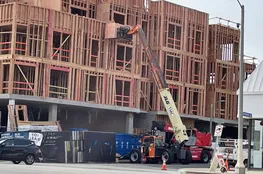Lebanon is grappling with a displacement crisis that has the potential to destabilize the nation from within. Though the country has endured severe bombardments, the internal displacement issue may prove to be just as destructive. Communities throughout Lebanon are reaching their breaking points, and societal tensions are escalating. With over a million people fleeing their homes during the initial days of Israeli bombardments, many individuals are left displaced and searching for safety in a chaotic environment.
A significant number of these displaced people live outside organized shelters, residing instead in informal accommodations, which complicates already strained relief efforts. While the government has attempted to establish emergency shelters, the sheer number of displaced individuals outweighs the available resources. Some citizens have shown solidarity by offering meals and shelter, but these acts, although commendable, cannot fully address the crisis. Fear and mistrust have begun to fray the social fabric of Lebanon.
In areas with Christian and Druze majorities, the apprehension that housing displaced individuals linked to Hezbollah could embroil them in conflict has led to reluctance in offering shelter. These fears have been exacerbated by reports of Israeli attacks on rental properties providing refuge to displaced families. The resulting policy decisions in certain municipalities have declared it hazardous to host internally displaced persons. A recent Israeli attack in Aitou underscores this risk, intensifying the vulnerability of already displaced individuals.
Lebanon's government has exhibited an inconsistent response to the crisis. Although an emergency plan exists, its implementation falters due to competing interests and an emphasis on safeguarding certain assets, such as properties owned by the central bank. This inertia perpetuates the suffering of a populace already destabilized by ongoing economic distress. Short-term measures must include enhancing public shelter capacity and reallocating available resources, with an eye on longer-term solutions like a government-backed rental scheme to stabilize housing.
In the medium term, rent control measures could protect displaced families and landlords while transitioning toward more sustainable public housing initiatives. If unaddressed, Lebanon's shortfalls in housing and social policy could contribute to renewed civil instability. By overhauling the property market, regulating housing costs, and ensuring basic services for all displaced persons, Lebanon can begin to mend its fragile societal contract. Failure to act risks a resurgence of the divisions that once plunged Lebanon into civil war.
























